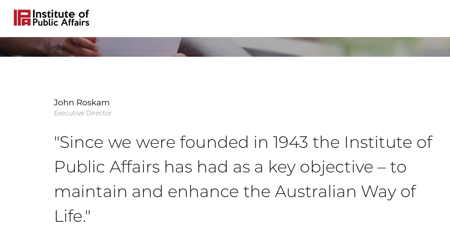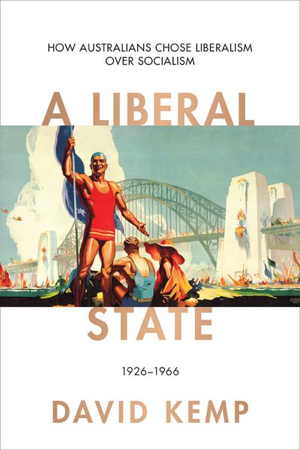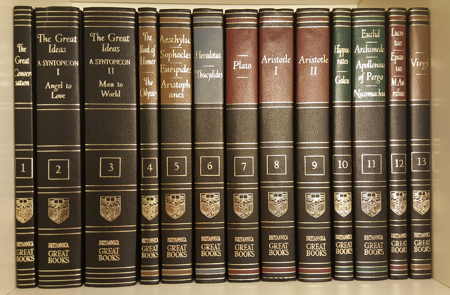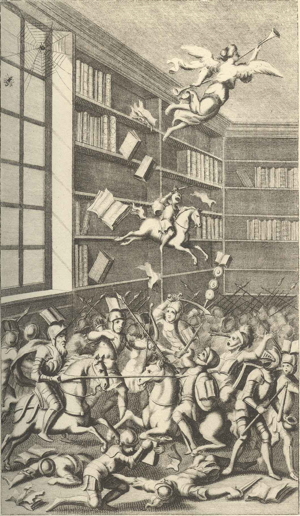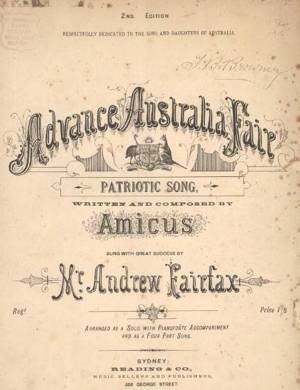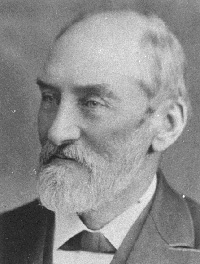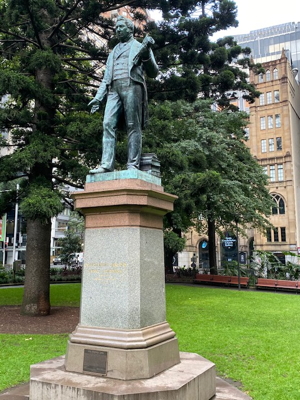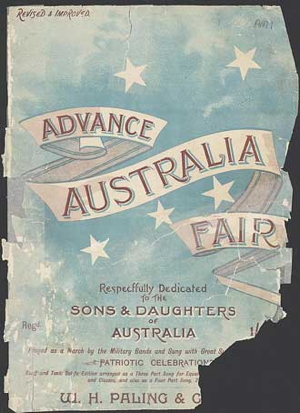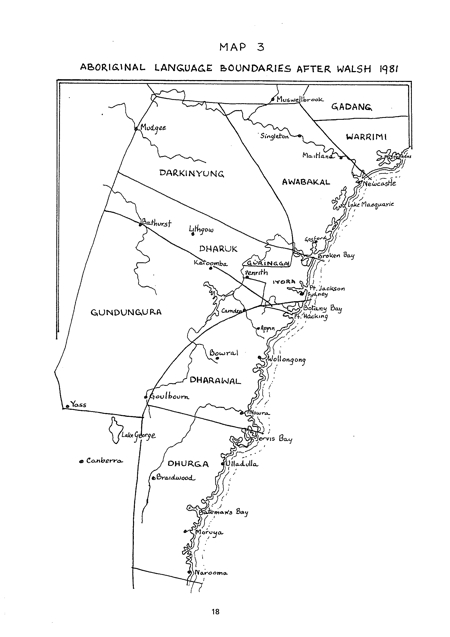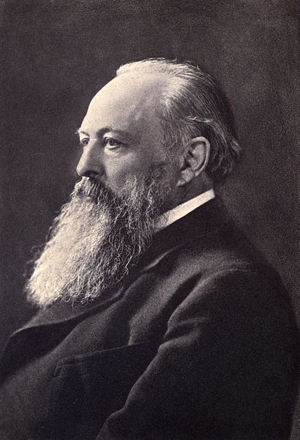Table of Contents
- (1.) The threats which confront the liberty movement
- (2.) The task ahead
- (3.) Looking for the “Golden Thread” to unravel justifications for state intervention
- (4.) Choosing the right kind of arguments to use
- (5.) Where we are now and what we need to do next
- (6.) Conclusion
(1.) The Threats which Confront the Liberty Movement
II have taken the roughly 15 year period following the end of the Second World War as my starting point in this paper as this is when there was a concerted effort to build organisations to defend liberty and oppose the expansion of state power which had taken place in the first half of the 20th century. I have in mind
- Leonard Reed and the Foundation for Economic Education founded in 1946
- Friedrich Hayek, Milton Friedman, et al. and the Mont Pèlerin Society founded in 1947
- Anthony Fisher and the Institute for Economic Affairs in 1955
- Pierre F. Goodrich and Liberty Fund in 1960
- F.A. Harper and the Institute for Humane Studies in 1961
Long-standing and on-going threats to liberty
Some of the serious threats to liberty which they identified at that time (the 1950s and 1960s) are still with us, which says something about how difficult it is to shift opinion (both public and academic) and to reverse or even slow down the ever increasing expansion of the power of the state. Furthermore, there are numerous new threats which have appeared over the ensuing decades which I think makes our task even more difficult than it was for the Fisher-Goodrich-Harper generation of CL/libertarians.
Long-standing and on-going threats to liberty include:
- the rivalry (“cold war”) between the major nuclear powers and the threat of MAD (mutual assured destruction): the US, Soviet Union (now Russia) and China
- the expansion of the welfare state
- inflation and the expansion of the money supply by Central Banks (now called “quantitative easing”)
- the expansion of state-funded universities and the dominance of left-wing and Keynesian ideas within the academy
- the expansion of the regulatory state (now known also as the “nanny state”)
- the many “small” wars fought by the US/NATO and their allies (like Australia) to achieve “regime change” or promote the spread of “democracy” or fight “communism” (now “terrorism”)
New threats to Liberty over the past 20 Years
I would also add the following list of new threats to liberty which have emerged over the past two decades, especially as a result of the attacks of 9/11 2001, the global economic crisis of 2008-9, and the Covid lockdowns of 2020-22:
- the rise of the “surveillance state” after 9/11 with the monitoring of all telephone and email communication, and now the censorship of so-called “disinformation” spread via social media companies; it should be noted that Australia has played an important role in the emergence of the surveillance state by its membership in the Five Eyes intelligence alliance which is made up of Australia, Canada, New Zealand, the United Kingdom, and the United States
- the use of ”quantitative easing”, the government bailout of the banks and large investment firms, and the massive rise of government debt as a result of the global economic crisis of 2008-9
- the rise of a radical “Green” environmentalist movement which is demanding massive government intervention in and regulation of the economy in the form of a Green New Deal, government subsidies for “renewable energy,” and policies of carbon “neutrality” or “net zero”
- the rise of “neo-protectionism” and “industrial policy” which is a key platform of various nationalist and “populist” leaders such as Pres. Trump
- the resurgence of explicit interest in and support for “socialism” especially by young people which was noticeable at the time of the anniversaries of the birth of Karl Marx (1819) and the Bolshevik Revolution (1917); this also includes the respect some intellectuals and commentators have for the policies of the Chinese Communist Party as another path for economic development to take, or to control the spread of the Covid virus
- the emergence of the “Lockdown State” and what I call “Hygiene Socialism” during the Covid panic of 2020-2022; this has resulted in the acceptance by the general public that our lives should be controlled by “experts” and that governments can and should centrally plan key sectors of the economy
- the continued domination of the universities and schools by leftist intellectuals who have among other things promoted “woke-ism”, identity politics, the de-platforming of divergent opinion, and the promotion of Critical Race Theory
(2.) The Task ahead
When one adds all these up the list is a formidable one (the above contains 13 items) and it is so daunting for the future of the liberty movement that one wonders where to begin. For each of these threats to liberty there are some common elements and some common tasks which those in the liberty movement will have to undertake:
- there are the theoretical ideas which are used to justify these policies: these ideas are typically developed and propagated in the economics and politics departments of universities and colleges and so this is the arena where they need to be challenged and refuted
- there are the entrenched vested interests (both political and economic) which will vigorously defend their continued existence and even their expansion: this is a political problem which has to be addressed at the legislative level
- there is an ignorant or misinformed public who either tolerate these policies or demanded them in the first place: this problem has to be addressed by a broadly based campaign to popularise sound economic thinking
Each one of the threats to liberty I have listed above individually would require a small army of academics, intellectuals, journalists, agitators, and sympathetic politicians and voters to challenge the policies and to begin the long task of repealing them. Multiply this by 13 and one can get a sense of the task ahead.
It is my suggestion that there are several possibilities we need to consider:
- there is a need for a division of labour in the liberty movement , where those with special interests and skills apply themselves to opposing one of these threats. This happens to a considerable extent already today with groups which focus on environmental issues, war and peace, government regulation, and so on. For new entrants, the question then becomes whether or not to join an existing organisation, or found their own organisation (say in a region or a country which does not have such a group)
- there is a need for “movement investors” and “intellectual entrepreneurs” who have the skill to identify an emerging new problem which needs addressing, finding the people and the funding to organise them into a coherent group, and guiding them through the labyrinth of practical politics to get the changes which are required.
- there need to be be “feeder organisations” which can identify young and emerging talent, help them to be trained in the theoretical and political skills needed to be effective advocates and agitators for liberty. These feeder organisations should be directing the young talent they identify and train into various paths such as think tanks, lobby groups, existing political parties (“infiltrating the enemy’s camp”), or a separate “Libertarian” or “Classical Liberal” party. A related path which requires a different set of organizational skills leads to academia.
- there needs to be organisations or research centres to support academics who are interested in free market ideas and CL political philosophy; these people need to be found, cultivated, and supported as they move through what is a very hostile intellectual environment (the “academy”)
- there needs to be “outreach programs” to take the message about political and economic liberty to the masses; this effort will require skillful writers and speakers who can made complex ideas, especially about how markets operate, accessible to non-expert audiences whose minds are filled with misconceptions and errors which they have learnt at school or via social media
- finally, there needs to be coordination among the various groups in order to avoid unnecessary and expensive duplication, and to identify gaps in the movement which might need to be filled, or to address a new threat to liberty which might suddenly emerge as a result of a crisis
The problem for a small and relatively insignificant country like Australia is to figure out what it can do to contribute to the broader, international liberty movement and where it fits in. One possibility is for it to become a “beacon of liberty” now that Hong Kong is in the process of losing that status as it is gradually swallowed up by the CCP, and given the fact that the government of Singapore has strongly authoritarian bent. Imagine there being a truly liberal nation which is independent of “entangling alliances”, highly productive and competitive in world markets, and fully open to the free movement of goods, services, and people.
(3.) Looking for the “Golden Thread” to unravel justifications for State Intervention
Is there a “golden thread” which links all these disparate threats to liberty together, so that unraveling or cutting this one thread will end many of these threats in one blow so we don’t have to fight each one individually.
On the other hand, there may not be just one “golden thread” we have to cut, but a bundle of them. The following is a list of four key ideas which I think are common to many if not all forms of justifications for state control and intervention in the economy and in people’s lives in general. To undermine or refute any one of these key ideas would, I think, take us a long way to persuading people to rethink their faith in government intervention in our lives:
- the morality of using coercion
- misperceptions and exaggerations about the extent and cause of market failure
- the lack of understanding of the extent and cause of government failure
- public ignorance of basic economic insights which makes points 2 and 3 possible
The morality of using coercion
There is an almost universal belief that there is a difference in the sort of behaviour states and their agents can engage in compared to ordinary mortals like us. The common belief is that states are “justified” in the use of coercion to compel compliance with regulations, to seize our property in the form of taxes, and to kill other people in war, whereas ordinary people are not justified in using coercion in this manner.
In Australia, which lacks a strong tradition of thinking about natural rights and this a Bill of Rights to enshrine and protect them (unlike the US) the dominant political ideology is one of “expediency”, where the use of coercion is considered to be essential in order to “get things done”. This belief makes it possible for the emergence of a government based upon “technocratic managerialism”, which is supported by both major parties who take it in turns to be be the “manager.”
There would be much less tolerance for the government’s use of coercion if more people thought that the use of coercion by anybody is immoral. If they believed this, then they would feel outrage or contempt for those politicians and bureaucrats who used coercion every day to achieve their goals, they would feel ashamed and guilty if they personally sought and got handouts from the state which are financed at taxpayer expence (and thus got by means of coercion through compulsory taxation) ; or if they sought privileges from the state like monopolies or subsidies for their business.
For those who defend “limited government” the argument has to made that the sole legitimate function of government is to protect the the life, liberty and property of citizens by minimizing the use of coercion by one person against another (such as robbers, fraudsters, rapists, and murderers), and that the coercive actions of the state and its agents must also be strictly limited in scope, otherwise it in turn will become a threat to the life, liberty and property of the very people they are supposed to be protecting.
We should also make the case for the virtue of “self-help”, that instead of seeking government organized and tax-payer funded “charity” in times of economic hardship we should take steps on our own to avoid or prepare for economic hardship, or organise with others (family, neighbors, like-minded people) to help those in genuine need. We also need to use social ostracism against those who receive tax-payer funded handouts, subsidies; and those who seek to rule others, in order to discourage them from continuing these practices.
Misunderstanding the nature of “Market Failure”
It is crucial for us to disabuse people of the mistaken idea that the market has inherent flaws which inevitably lead to serious problems unless “corrected” by government action. These “market failures” are typically thought to be things like the monopoly and predatory power of large corporations, the boom-bust economic cycle, environmental “degradation” caused by any industrial activity, and the inability to provide all kinds of “public goods”.
There is thus a need for a better theoretical and historical understanding of what constitues “market failure”, why and how they happen, and what can be done to rectify them. Free market economists have produced many studies which have examined why markets “fail” but these are not well known among the general public: that “failure” is due to previous or continuing government regulation, the prohibition of competition, the lack of clear property rights; the absence of free market price signals. There are also many historical works which show that “public goods” have been provided privately on the market in the past and can be provided again in the present if they are allowed to do so.
Ignoring the even greater Problem of Government Failure
There is a near universal belief that governments and “experts” (technocrats) employed by the government can solve problems, “manage” the economy, and provide services which private individuals cannot. This belief has been maintained in spite of the many disastrous attempts by government in the 20th century to “plan” or “manage” the economy, and the theoretical work of the Public Choice school of economics, whose insights are almost universally ignored in the economics profession.
There is an entire gamut of public choice insights which need to be better appreciated by the public. These include the self-interested behaviour of politicians and bureaucrats; the inevitable capture of the state (parliament) and its regulatory bodies by powerful vested interest groups; the problem of “perverse” institutional incentives, and the issue of “political” rent-seeking by vested interests .
There are also important insights which have been made by the Austrian school of economics, especially by Ludwig von Mises and Friedrich Hayek, such as Mises on the “impossibility” of rational economic calculation under socialism due to the absence of free pricing (especially of capital goods), and Hayek’s “problem of knowledge” which is that central planning can never have the widely dispersed local knowledge of consumer needs, the availability of resources, and the constant changing local conditions which are necessary for production of goods and services to take place.
These insights mean that any government attempt to “manage” or “centrally plan” an economy is doomed to failure, whether this be the “total or universal” central planning which the Soviet Union attempted to do, or whether it be “partial or sectoral” central planning which many so-called “liberal democracies” attempt to do with industrial policy, renewable energy production, or vaccine development.
Public ignorance of basic economic concepts
Time and time again we see how deep the general public’s ignorance of basic economic ideas is. Every time there is a major storm or flood and the price of bread or bottled water goes up the public denounces shop keepers for “price gouging” and calls for government regulation and price controls.
The mid-19th century French economists Frédéric Bastiat was the most brilliant populariser of economic ideas who has ever lived, but even he could not disabuse the French public of these commonly held economic “fallacies” or “sophisms”: that there are opportunity costs for every economic decision one makes; that there are “the seen and the unseen” consequences of economic actions (especially government intervention in the economy); the idea that every action has a cost and a benefit which is different for different people and groups; the inevitability of “unintended consequences” of government regulations, and so on.
The persistance of these economic “fallacies” in the mind of the public indicate that we need a new Frédéric Bastiat to popularise economic ideas, not to mention better trained economic journalists who also share these false economic views and spread them to the reading public.
(4.) Choosing the Right Kind of Arguments to use
Selecting the right kind of arguments in order to defend liberty and criticize government intervention and coercion is an important strategic matter as different people respond to different kinds of arguments. For example, some people find “economic” arguments heartless and respond better to moral arguments about fairness and justice. Others are driven on a more emotional level to seek safety or protection from some immanent crisis or perceived catastrophe such as climate change or a virus pandemic. Hence their demand that “the government do something” to solve the problem immediately. So, we have to identify the kinds of people we are trying to convince and to select the best kinds of arguments to suit that particular group.
I think defenders of liberty need to appeal to the following different groups:
- the average voter (this is the job of a political party)
- people who are still forming their opinions, such as students (Mannkal, CIS, IPA)
- educated people who might be swayed at the margin (CIS, IPA)
- sympathetic academics and intellectuals (journalists, writers, artistic types) – if there are any! (IPA, CIS??, Liberty Fund)
CL and libertarians have historically used a “smorgasbord” of arguments to defend liberty which include:
- moral arguments which appeal to justice and a particular moral theory concerning property rights, individual liberty, and the nature of political power (coercion)
- economic arguments which appeal to notions of economic efficiency and the greater productivity of free markets
- political arguments about the dangers posed by political power and the need to limit it, and how best to organise the political system in order to enable the state to undertake properly its legitimate functions (if any)
- historical arguments concerning the evolution and expansion of state power over the past century (Higgs’ “ratchet effect”), the nature and causes of government failure, the nature and causes of market failure, the struggle for liberty in previous centuries (the “Great Emancipation), and the vast improvement in the human condition brought about by free market “capitalism” (the “Great Enrichment”)
Moral Arguments
Some of the moral arguments which have been used to defend liberty and oppose government interventions include:
- that the use of coercion against others is immoral and a violation of their natural rights to life, liberty, and property
- people should be “free to choose” and then pursue whatever life goals they prefer (however they imagine them – Jeffersons’ idea of “the pursuit of happiness”) without outside interference (i.e. force); so long as they respect the equal right of others to do the same (Herbert Spencer’s “law of equal liberty”)
- that this “freedom to choose” is what it means to be “human” and that to prevent individuals from doing this is fundamentally wrong (as it demeans their “humanity”)
- the goal is “flourishing” both as an individual and as well the groups and communities these individuals voluntarily associate with or create
- the means to achieve this goal is non-violence, cooperation, mutually beneficial association for production and trade, and the division of labour
- a belief in the dignity and worth of productive labour, producing goods and services to satisfy the needs of others (McCloskey) – these activities are “morally good” and worthy of social recognition
- conversely, the “immorality” of acquiring wealth or political privileges by the use of power, and coercion exercised over others; that seeking such power over others should be regarded as immoral, and not what free individuals should do or aspire to (how far to push this?? – this includes politicians, bureaucrats, privilege or rent-seekers, government contract seekers, wielders of coercive power (police and military))
- the idea that it is wrong to accept “compulsory charity” or benefits from the state at the expence of others (taxpayers); people should think of this as shameful and not a “right” that is due to them from others
Economic Arguments
These are very well known in CL/Libertarian circles so I will not provide a comprehensive and detailed list here. They can be summarized as arguments about the greater efficiency and productivity for free markets (capitalism):
- the greater wealth creating possibilities of “free market capitalism” due to mutually beneficial cooperation, the division of labour and specialization, and free trade (both domestic and international)
- the incentives to be productive and satisfy the needs of others (consumers) caused by the private ownership of property, and the possibility of making a profit (with the corresponding disincentive of making losses)
- the ability of free market prices to rapidly convey information about what is demanded by consumers, how pressing or urgent that demand is, what resources are available and at what cost for producers to create and then deliver these goods and services to consumers
- the enormous innovations made possible by the free market (capitalism) which are the result of the advance of scientific knowledge, technological improvement, simple trial and error, and the existence of entrepreneurs who are able to identify new opportunities and carry them out successfully
- the existence of “competition” between producers for new customers creates greater choice and lower prices
- the much greater life choices made possible for individuals (especially women, and peasant farmers) by an extensive, global and international division of labour
- the more general “creative” benefits of free, open and tolerant societies in the cultural sphere
Political Arguments
- a liberal and democratic political system makes it possible for ordinary citizens (voters) to make their rulers accountable for their actions, and to help determine how much and what kind of taxation and regulation by the government will be permitted (although this ability is often exaggerated by supporters of democracy); the benefits of democracy is that the voters can get rid of bad politicians and bad policies without resorting to violence; the weakness of democracy is that all new governments have a strong incentive to become bad governments which introduce bad policies again in an endless cycle
- interventions in the economy (and in private life in general) create additional problems because of inevitable government failure, the creation of perverse incentives, and unintended consequences (Bastiat’s “the seen and the unseen”); there is pressure on government by voters which pushes politicians to intervene again and again to solve the problems caused by these previous interventions ( Mises’ “dynamic of interventionism”)
- periodic crises (economic recessions, depressions, war, epidemics) lead voters to demand that “the government do something” which usually means greater intervention in the economy, higher taxes, and more regulation of private lives; once the crisis is over the regulations and taxes may decrease but not to their previous lower level, thus leading to the gradual expansion of state power over time (Robert Higg’s “ratchet effect”)
- power attracts unsavory types of people (predators, arrogant ideologues and would-be rulers) and “do-gooders” (perhaps naive and well-meaning) who want to use state power to achieve their ends (Hayek’s “why the worst get on top”); this can only be prevented by reducing the power and scope of the state to make it less attractive to predators and impossible for these people to act in this way
- political power inevitably attracts rent-seekers who lobby politicians, regulators, and bureaucrats to do them favors in return for certain benefits in return (campaign funds, jobs on company boards later); this attraction to power will not end until political power is reduced or removed entirely; this is one of the contradictions of democracy, by which I mean that it has built-in incentives and an existing mechanism to enable those who wish to undermine liberty to do so
- the welfare state inevitably creates a “dependent class” who will never vote for cuts in government expenditure; they in turn create a permanent and growing class of welfare administrators and distributors with a very strong self-interest to defend; the real danger is that if or when those who receive benefits become the majority they will always vote to protect (or even expand) these benefits (another contradiction of democracy)
- politicians often play the “nationalism card” to persuade voters to accept considerable intervention in the economy, such as the idea of the need for “national industries” (like a car industry) or for the state to seek “energy independence” (via heavily subsidized “renewable energy”), or even “national greatness”; nationalism is usually taught in the state school system (via nationalist history) and promoted by means of “national holidays”; CL/libertarians need to persuade voters that we need to find a way to combine being a member of an internationally diverse and integrated trading system and the desire of many voters to express their feelings of patriotism (nationalism?) which can often be quite narrow and parochial
Historical Arguments
Hayek observed that people often get their economic ideas indirectly by means of the history they were taught at school. For example, the belief that “capitalism” underwent a crisis or even a breakdown during the Great Depression and that western economies were only saved by massive government intervention; or that the industrial revolution impoverished millions of people and forced them to work under nearly slave-like conditions. The task for defenders of liberty is to show that the benefits of the free market and the harms of government intervention are not just theoretical matters but can be demonstrated by many historical and present-day examples. The general ignorance of the public on these matters is truly staggering and it will require an enormous effort to rectify this massive problem.
Thus this section will have two parts (many of the remarks made above also apply to this section):
- the failures and harms caused by government intervention and political privilege
- the successes and benefits of free markets and limited constitutional governments
The failures and harms caused by government intervention and political privilege
- the poverty caused by hundreds of years of serfdom and slavery which were protected and enforced by the state
- the death and destruction caused by hundreds of years of inter-state rivalry and wars
- the suffering of people in “the colonies” who were enslaved and exploited in other ways for the benefit of privileged traders and plantation owners
- the violation of the freedom of speech and association caused by the banning of rival religious groups by the privileged established church
- the exclusion of working and middle class people (and of course women of all socio-economic classes) from participation in elections which enabled privileged elites to set the kind and level of taxation (and other legislation and regulations) to suit themselves at the expence of ordinary people
- and with the massive increase in the size and scope of state power in the 20thC we have bigger and better examples of government failures on a colossal scale, such as the “Great War” (WW1), the rise of communism in Russia and China, the rise of fascism and Nazism in Italy and Germany, the “Great Depression”, Prohibition I (of alcohol in the US in the 1920s), the “War on Poverty” since the 1960s; Prohibition II (the “War on Drugs” since the 1970s), the rise of the “‘surveillance state” after 11 Sept. 2001, and most recently the attempt to eliminate or control the spread of the Covid virus by means of coerced lockdowns and other draconian restrictions of economic and social life.
- it should be noted that probably the biggest single expansion of government power occurred during WW2
- it should also be noted that the “War on Terrorism” since 2001 has also been a spectacular and costly failure
The successes and benefits of free markets and limited governments
The successes and benefits of free markets and limited governments can be summarised as the result of the “Great Enrichment” (Deidre McCloskey) and the “Great Emancipations” (David Hart) which have taken place since the mid-18thC. The failures and harms listed above were either eliminated or significantly ameliorated by these two great forces of emancipation and enrichment which began to exert themselves during the Enlightenment, and put into practice, with varying degrees of success, during the American and French revolutions, and then the various liberal reform movements in Europe (and Australia) during the 19th century. What needs to be stressed is that these reforms were driven by the spread and adoption of liberal ideas about individual liberty, the protection of life and property, and restrictions on the power and scope of government activity. These reforms included:
- the abolition of serfdom and slavery
- the expansion of the franchise to include first middle class votes, then more working class votes, and then eventually women voters.
- the introduction of written constitutions and bills of rights to limit the power of the state and protect the liberties of ordinary people, such as freedom of speech, religion, association, movement, choice of occupation; one again it should be noted that although Australia has a written constitution it does not have Bill of Rights grounded in natural law and natural rights principles; this might have happened if its constitution had been written in the 1790s instead of the 1890s, but by then it was too late. [Note: because the intellectual climate of opinion has changed so radically since the time of the writing of the American Bill of Rights (Amendments to the Constitution), the danger is that any Bill of Rights written today would not contain a list of rights derived from natural law/natural rights principles but one based on modern notions of “welfare rights”, such as a right to state provided welfare or health.]
- the deregulation of the economy which allowed the expansion of industrial activity, freedom of trade and occupation, the division of labour, the right to make and keep the profits one made in such activity, all of which led to an explosion of wealth creation and prosperity the like of which the world had never seen before
- the freedom of movement of people to escape poverty and political oppression by “voting with their feet” to go to other jurisdictions (and to enter those jurisdictions without passports or visas), either domestically by moving from the countryside to the city, or internationally to North America (the US and Canada) or elsewhere like Australia and Argentina.
The sad fact is that historically, this emancipation and enrichment was never allowed to be fully realized as the state reasserted its power in the late 19th century and during the 20th century especially during the “30 Years War of 1914-1945”. The liberal revolutions were left incomplete or unfinished as illustrated by the following:
- the persistance of colonies and empires by all the major European powers
- the retention of large standing armies and navies which required conscription, high taxation, and “war industries” run by the state, which made large scale wars possible
- the creation of early forms of the welfare state in the late 19th century (Bismarck’s Germany) and which were made nearly universal following WW2
- the emergence of ideas and policies (discussed above) which justified the introduction of the income tax, central banking and fiat currencies, the regulation of nearly every aspect of economic activity, the re-emergence of protectionism, national industrial policy, and the overly protective (or rather repressive) “Nanny state” (which might be better described as “the Nurse Ratchet state”)
(5.) Where we are now and what we need to do next
Living in a Hybrid system where there is a mixture of liberty and state coercion
The result of these partial emancipations and enrichments, combined with the reassertion of state power and regulation, is that we now live in a “hybrid” system where the gains of market productivity and innovation (technological, scientific, logistical) have been able to keep ahead of government impediments (regulation, taxation). In addition, many of the political and social emancipations which western societies gained in the past have been partially retained although significantly whittled down by regulations and controls. I call the remnants of these freedoms our “legacy freedoms”. We have now reached the point where one has to wonder how much longer can the forces of emancipation and enrichment stay ahead of the state’s insatiable desire for increased power and control?
The period of emancipation and enrichment was based upon the widespread acceptance of liberal values and ideas among large sections of the public, who used the pressure of public opinion and mass political agitation to push for liberal reforms, the best examples being the public campaigns to eliminate the slave trade and then slavery itself, and the removal of the protectionist Corn Laws in England in 1846. However, the belief in liberal values began to weaken significantly in the late 19th century and largely disappeared in the first half of the 20th century. In our “hybrid system” the belief in liberal values and beliefs has been severely weakened to the point where to a large degree they have been replaced with their opposite, namely a brief in the justice and feasibility of state coercion to solve social and economic problems. The default position for most people today is not “the presumption of liberty” but the “presumption of state intervention,” or in other words that “the government should do something.”
This shift in belief has produced what I call “the normalisation of state coercion”. By this I mean the acceptance by the vast majority of the people that the use of state coercion is normal, necessary and inevitable in order to solve our social and economic problems. They thus hardly ever question this belief and demonstrate strong opposition when CLs/libertarians do question it. The problem for us is how to get enough people to begin questioning the wisdom, justice, and necessity of this belief, and if we can succeed in doing this, how to channel this doubt into reforming our society in a more liberal direction.
Crises and Tipping Points
Robert Higgs argues that the periodic crises which afflict our society (usually caused by state interventions in the economy, like recessions and depressions, or the outbreak of war, which is also the result of state activity vis-à-vis other states) has resulted during the 20th century in a “ratchet” effect , whereby the state increases its power during the crisis, relaxes those controls a bit at the end of the crisis, but retains some of the increase in its power until the next crisis, when the “ratchet effect” is experienced again. The net result over decades is the steady and seemingly irreversible expansion in state power and scope. His pessimistic conclusion is that, in the absence of any strong countervailing ideological opposition to this expansion, it will continue indefinitely or until a catastrophic economic breakdown takes place (or what Mises called the “crack up” of the economy), or when the people rise up in a bloody rebellion or revolt.
Periodic crises can create “tipping points” where people are confronted with a new and serious problem and are forced to question their existing beliefs and to look for something else to explain their current situation and to offer them a way out of the crisis. The hope for those in the liberty movement is to be able to take advantage of such a crisis and tipping point to push people in a pro-liberty direction. A good example of this was the famine in Ireland in 1845 which was a crisis used by free traders like Richard Cobden to successfully agitate for the repeal of the protectionist Corn Laws and the introduction of free trade in 1846. The sad fact is that the experience of the 20th and 21st centuries is that the various crises which have occurred and which offered such “tipping points” have had the opposite effect, namely pushing people to look for and adopt pro-state, interventionist ideas and policies to solve the crisis. The problem for us in the liberty movement is how to use crises and tipping points to move things in the other direction.
The “covid crisis” and the mass panic it induced is the most recent and perhaps most extreme example of such a tipping point we have seen in a long time. It was stunning for those in the liberty movement to see how quickly and how willingly people gave up their personal and economic liberties and, if the Higgs ratchet effect is still functioning, these liberties will not be returned in their entirety any time soon (if ever). The crisis also revealed the moral preferences of the majority of the population, showing that they did not value their personal or economics liberties very highly (if at all), that they valued the spurious promises of “security” and “protection” offered by the state much more highly than liberty, and that the people believed the state could provide this “security” at an acceptable or no cost. The sad conclusion I draw from this is that unless we can change the public’s underlying moral preference back to one which places a high value on liberty then the liberty movement will not succeed and that every time there is a another crisis the public’s default position will continue to be “the government should do something”, even if this “something” destroys liberty in the process.
The Problem of Intellectual and Institutional Inertia
Those in the liberty movement have to face the problem of how to overcome the “inertia” which exists at both the individual and institutional levels and which makes radical change very difficult (perhaps impossible) to achieve.
At one level there is individual inertia. Once people have settled on a particular set of ideas (often at college age) it is most unlikely that they will change their thinking later in life. Thus, it is imperative to appeal to people when they are young and looking for the ideas which will shape their behaviour for the rest of their lives. This is exactly the strategy which has been so successfully adopted by the Greens and the environmental movement to appeal to high school children for whom the young Swedish school girl Greta Thunberg was a role model and source of inspiration. For older people more set in their ways of thinking, the best we can do is to try to change their thinking “at the margin”, that is to say, if there is a proposal for an increase in taxation we might be able to persuade them to accept a lower increase rather than a higher level of increases in taxation. This of course is not an ideal solution, but it is better than nothing.
When it comes to academics and intellectuals, the strategy should be to find those who have expressed some interest in some aspect of liberty and to encourage them to see the “bigger picture” of the interconnected nature of the broader liberty philosophy in the hope they will expand and deepen their appreciation of the benefits of liberty in all aspects of our life (social, political, and economic). For those academics and intellectuals who have invested their entire careers in defending state coercion and intervention in the economy it is highly unlikely that we can persuade them to change their minds and so we should not waste our scarce resources in trying to do so.
At another level, there is institutional inertia which can take two forms. Firstly, the implications of the Higgs “ratchet effect”means that once the state has acquired a new power it (or rather the politicians and senior bureaucrats who control the state) hardly ever (probably never) relinquishes that power, thus the state has a built in tendency to expand. At another level, those who have benefited from the expansion of state power – the vested interests who get government contracts or subsidies or a protected market with limits on competition, the lower level bureaucrats who staff the administration and implement the new government policies, and the voters who get tax-payer funded benefits and services – will fight tooth and nail to protect and keep these benefits. They constitute a formidable political impediment to liberal reforms.
It is sad to say that this group of individuals who directly benefit from state coercion are probably unreachable by the liberty movement and thus we should not waste our resources trying to persuade them otherwise.
(6.) Conclusion
The above comments paint a rather bleak picture of the threats which face the liberty movement. I will conclude by saying that my recommendation is that we in the liberty movement should constantly stress the following two points, namely to emphasize the benefits of liberty to both individuals and the communities in which they live, and the harms caused by the use of state coercion and intervention. What follows is my summary of these benefits and harms:
The Benefits of Liberty
- liberal ideas and the institutions they inspired made it possible for a wave of emancipations to sweep the western world which brought an end to a system which gave power and wealth to a privileged few and poverty and oppression to the majority of the people
- free markets based upon private property, contracts, mutually beneficial cooperation, the division of labour, and free trade made it possible for the “great enrichment” to take place, which brought unheard of prosperity to ordinary people for the first time; the benefits of industrial mass production and innovation which this unleashed are still improving our lives to this day
- liberty (“the freedom to choose”) makes it possible for individuals to choose and pursue whatever life goals they prefer, to be able to “flourish” and develop as individuals, to choose the people they want to associate with in families or their local communities in order to pursue common goals
- political liberty makes it possible for ordinary people (voters) to place a check on the power of politicians and other powerful individuals, to make them be responsible for their actions, and to exercise some control over how the broader community is structured (within the limit of respecting other peoples’ equal rights to life, liberty, and property)
- a spirit of liberty and toleration creates a society which is creative, innovative, and rich with new ideas, new products, new art and culture, and new opportunities for individuals to pursue as they see fit
The Harms of State Coercion
- government activity is based upon the use of coercion and the violation of individuals’ rights to life, liberty, and property; that the use of coercion is immoral even if done by the state and its agents and should therefore be strictly limited or even done away with entirely
- government failure is ubiquitous and inevitable; it wastes or destroys the wealth of its citizens; furthermore, each failure has a tendency to lead to further interventions which in turn inevitably fail or impose significant costs
- government activity discourages the development of independent and responsible behavior on the part of individuals, and encourages a spirit of dependency upon the state; this creates a semi-permanent “dependent class” of individuals who have to rely upon government welfare and other benefits in order to survive
- the coercive powers of the state attract individuals who wish to use those powers for their own benefit at the expence of ordinary taxpayers; this also creates a “class”, this time a parasitic “class of exploiters” who live off another “class of industrious producers”who generate the wealth needed for society to function
- rivalry between states often results in wars which destroy lives and wealth on a massive scale, which violates the liberty of its citizens through conscription into the army and the subordination of economic activity to the needs of the “warfare state”; in the nuclear age the scope for mass destruction and killing by states is so vast that it is hard to contemplate
Some Final Thoughts
One might hope that if these alternative visions of the benefits of liberty and the harms of state coercion can be presented to enough people in a form they find appealing and persuasive, then we in the liberty movement might be more confident about the future of liberty given the numerous threats it currently faces.

